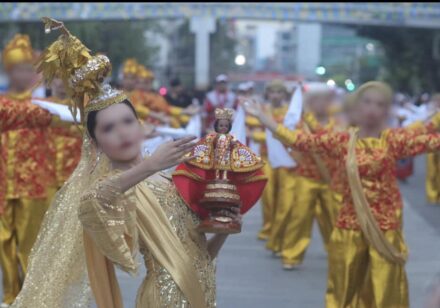(First of two parts)
There is much concern over environmental degradation. Climate change today, for instance, has been subject of numerous forums, debates and articles, especially in social media.
As inhabitants of our planet, it is our obligation to put action into words to help save our planet from further environmental degradation because we are facing an ecological crisis. We read about how our waters choke with plastic and how birds, terrestrial and sea animals fall dead or wash up on shore, deader than dead, poisoned by what they have swallowed: plastic, hooks, straws, nets, etcetera, the list is endless.
Parts of this piece today are taken from my paper, “Lessons from the folk: a study of setting in selected tales from Japan and selected tales from Mindanao as a recipient of a Sumitomo Research Grant in 2014.
Setting, it seems, is not so well studied when students take up short stories. The emphasis is on plot, characterization and the twists and turns of the story. Setting is often mentioned to support a behavior or how atmosphere has influenced their personal characteristics as defined in Britannica.com. Hence, I thought about how the folk have dealt with their own locales and how they have responded to climate changes and seasons.
When speaking of setting in any story, this includes the flora and fauna and other aspects of nature such as trees, flowers, animals, mountains, lakes, and rivers and the gods, demons and spirits that inhabit these environments. Setting likewise anchors the story to such locale or place, and influences the dress, manners and occupations of its inhabitants.
Down here in Mindanao where, generally speaking, typhoons seldom visit the island, typhoons, earthquakes, flash floods have become reality. Environmental degradation is therefore moving at a faster pace than modern man and Mindanaoans can imagine. It is time for us to look back at how the folk in the past, despite their being in the fictive world, had lived and coped in their own locales as a lesson to learn from.
In an attempt to show that in the pristine world of the fictive folk stories are lessons to be learned by modern man, I have, for this webpage, picked one tale each from Japan and from Mindanao as examples of how setting, alternately mentioned as nature here not only gives locale or physical place but the atmosphere that radiates from it. To a certain extent the reader gets a glimpse of how culture sprung from setting.
Lawrence Coupe in the book Green Studies (2000) he put together and edited, on the other hand, said man’s actions are always governed by his culture, it is true, but if that culture includes his belief that the non-human world is for his exploitation for industrialism, for technological advances, and that the means of production must be developed, then the advocates of Green Studies offers a response to this crisis.
Man has for long believed in his own dominance over the non-human world; his exploitation over nature has given him double-edged pleasures and joys because most of his inventions, on the one hand, have made his life comfortable and convenient but, they came with a price.
His share of sufferings, on the other hand, from the tragedies like man-made disasters, he himself is to blame: overpopulation, floods caused by over logging, fire in the workplace, chemical spills, overfishing, invention of hazardous materials like plastics, and non-biodegradable substances, weapons, or the Nuclear Plant, and other factories that emit air and water pollution that caused diseases to man.
The list is long and man’s puny attempt today to remedy environmental problems is close to desperate because as the Father of Modern Drama, Henrik Ibsen said it in his famous play, The Wild Duck, ‘nature does not forget”.
In examining how setting in selected folk stories, we have asked how the folk, therefore deemed unsophisticated, living in the fictive worlds dealt with their settings or the physical environments and nature.
In my original study, 17 Japanese tales and 15 tales from Mindanao were examined but for this piece only one from each country will be taken up as examples of folk wisdom for both Japanese and Mindanao folks have given due recognition and importance to nature.
In the Japanese folk legends, Richard M. Dorson suggests that from the thousands of these legends including its variations, it would seem now that, coupled with the formal religions of Japan, Shintoism and Buddhism, every willow tree, every river and every mound or mountain has value, has a story.
The setting of tales from Japan cluster around: Kyoto and Nara; the provinces of Kimasaka or Sakushun, Okayama Prefecture in Honshu, Kurita of Omi (Shiga Prefecture), Iyo, Echigo, Wasaka or Fukui Prefecture, Miyagi Prefecture, Fukushima, Ise and Saruga.
The settings of the Mindanao tales are from the provinces of: Davao, Maguindanao, North Cotabato, Lanao del Norte and Lanao del Sur, Misamis Oriental, Bukidnon, Basilan and Jolo.
In the tales, the metaphors and images are briefly discussed in relation to the themes of the tales since the metaphors and images suggest the historical, cultural and literary implications that make the tales fascinating even as these are inherently didactic.
Apart from all that, this writer is aware that the comparative analysis of folktales shows the different cultures and beliefs within Japan and the diverse cultures and beliefs within Mindanao.
To be continued.
comments are temporarily disabled.















